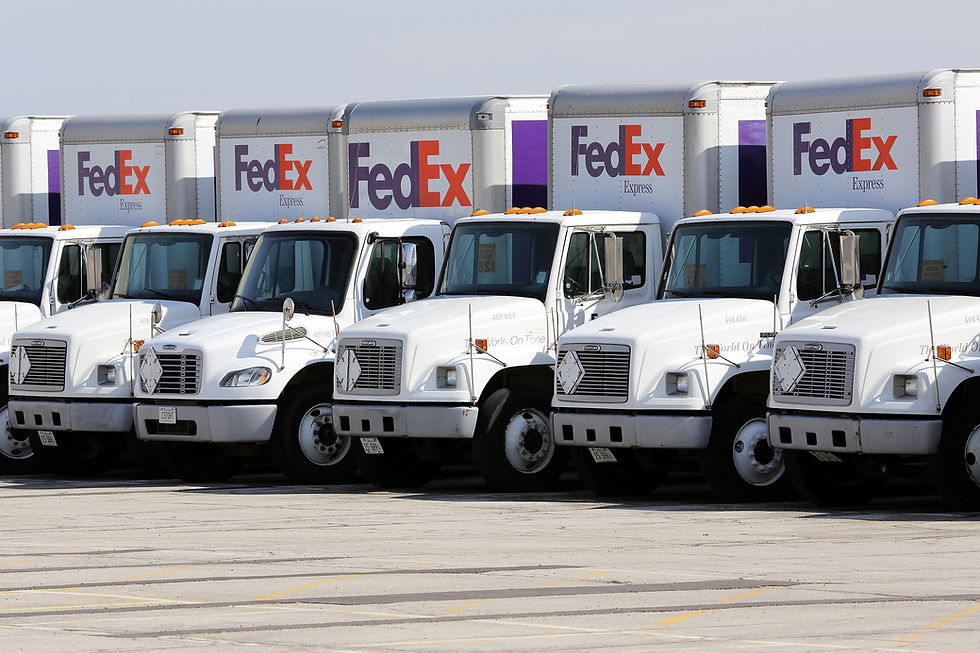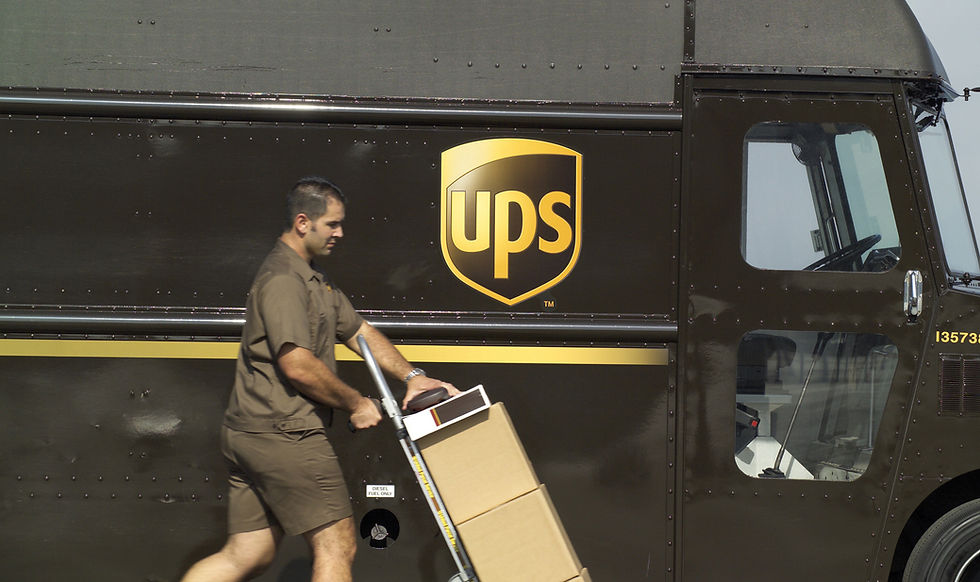Create what you value, and be valued for what you create
- Will Chong, M.A.Res

- May 6, 2024
- 6 min read
Updated: Oct 23, 2025

A Foundational Principle
In Good to Great, Jim Collins (2001) and his 20-strong team shortlisted just eleven GREAT ORGANIZATIONS from “an initial universe of companies” that were on Fortune 500 from 1965 to 1995 (30 years). They each met the team’s stringent criteria, eliminating global giants such as 3M, Boeing, and Coca-Cola. Each of these eleven companies averaged cumulative stock returns 6.9 times the general market over a sustained period of fifteen years, following a particular transition point in the history of the enterprise. At each of these eleven crucial transition points, there was a particular brand of leadership that Collins called “level-5 leadership.” In each of these eleven leaders, there was a particular humility that attributed their extraordinary financial outcomes to...luck. Of course, there is a caveat: they apportioned poor results to neither luck nor other external factors, but to their own responsibility. It is worthy to note that each of these “level-5” leaders was not some superstitious crystal-ball gazer, but a workhorse who brutally subscribed to facts.
The insight drawn from Collins’ invaluable study, for better or for worse, and at once an illuminating, liberating, and scary prospect, is:
WE CANNOT CREATE PROFITS.
We cannot create profits because create implies control and guarantee. We may increase the probability of procuring a profit through, for example, a methodic and mathematical approach, using data to perhaps try and manipulate outcomes; but still, there is no guarantee, only an increment of chance at best—because the truth, no matter how we see it, is that all profits are deposited from external factors. This is a scary prospect because it implies a loss of control; it is liberating because it directs our focus and energy away from what is not controllable; and it is enlightening because we may now see with greater clarity what we can control. Hence, the good news:
WE CAN CREATE OPPORTUNITIES.
WE CAN PURSUE PROFITS BY CREATING VALUE.
As to what constitutes “value” is a relative matter subject to one’s perspective. One may be more inclined to calculation and facticity like Warren Buffet’s Berkshire Hathaway, or intuition and creativity like Steve Jobs’ Apple; both being (more or less) equally profitable. The very fact that there are in existence many different perspectives on procuring the same success—from Ray Dalio’s (2017) Principles to Harvard’s (2005) Blue Ocean Strategy to Richard Branson’s (2007) Screw It, Let’s Do It—only goes to show that there are many legitimate roads to “Rome.” Perspectives may vary from person to person, and from organization to organization; but the constant for organizations that could sustain their successes—the “visionary companies” per Collins—from American Express to Johnson & Johnson to Walt Disney—is that they are each committed to a particular if different organization and business DNA (Collins 1994). Successful and sustainable businesses are valued for their distinct “brand”—simply put:
THEY EACH CREATE WHAT THEY VALUE
AND ARE VALUED FOR WHAT THEY CREATE.
The Phenomenon of “Brand”
“Qualia,” according to the polymath, C. S. Peirce, are the subjective properties, the “distinct quality,” the “phenomenal character” that make up a person’s subjective experiences (Tye 2018). What it feels like to watch Bruce Lee is different from what it feels like to watch Mother Teresa. The qualia of these different experiences are what give us each of their characteristic “feel”: Mother Teresa being a complex combination of “lovingness,” “humbleness,” “earthiness,” “peacefulness” that may be summed up as “saintliness,” and streamlined into a personality: THE SAMARITAN; and Bruce Lee’s “fitness-ness,” “solidness,” “swiftness,” “crea- tiveness,” “prowess-ness,” “elitist-ness,” all summed up as “kungfu-ness” or “invincibleness”: THE PUGILIST. Qualia are why we value these individuals. Qualia are why we value anything at all—because it transforms people, things, and events into distinct and engaging experiences.
We may designate qualia as an entity’s “brand.” The fun-ness of a Mini Cooper, the stateliness of a Mercedes- Benz S-Class. The enchanting-ness of Disneyland, the thrilling-ness of Universal Studios. The relaxed-ness of New Zealand, the thriving-ness of New York. Qualia is what we buy in to, when we buy in to anything at all; for we do not buy products, we buy product experiences. (A “practical” and “frill-less” product is still a product experience.) The global marketplace—where every corporate activity revolves around the creation of distinct value—is pullulated with qualia that are generated by corporate brands. From “Apple” to “WWF” to “IMF” to Scientology, these brands globally influence the behaviors, and permeate the lives, of countless individuals. Especially where companies compete at the same quantitative league (assets, market cap, revenue, personnel, etc.), organization qualia is crucial for differentiation—quantitative assets alone are unable to create buy-in values for customers and employees. Here are three world-class brands—each committed to producing distinct sets of qualia—that differentiate themselves within the same Fortune 500 league, and the same red-ocean logistics sector: DHL, FedEx, and UPS. In each of these enterprises, they do not only deliver parcels and provide logistics—they operate from a distinct trio of core competencies that can each be streamlined into a brand archetype.
DHL: THE SWASHBUCKLER

DHL operate from a distinct combination of core competencies: Acquisition, Entertainment, and Dominance—collectively, the Swashbuckler.
The Swashbuckler (aka the Gunslinger) creates a super-trio of Success, Fascination, and Power; they are the Zorro who takes down adversaries with artistry, and the valedictorian who scores straight-As and still have time for football. They turn minefields into playfields, overcoming herculean tasks while still entertaining an audience.
DHL, the Swashbuckler, turned a highly regulated and somewhat rigid logistics industry on its head with its “maverick” and “irreverent” persona. Their advertising campaigns have always been entertaining, “clever,” and even “prankster”; and their corporate culture, vibrant and optimistic. In 2010, they invested €100 million on, and co-developed, their award-winning CIS program to boost employee performance (Kalra 2020). They pioneered the use of helicopters to cheat peak-hour traffic; and, in 2014, upped the game by developing automated “skyports” that enabled customers to make aerial deliveries through “parcelcopter” drones. Their corporate activities are summed up in a swashbuckler-ish vision: “Excellence. Simply Delivered.” Their yellow and red italicized logo is consistent with the swashbuckler’s characteristics of speed, passion, and boldness.
FEDEX: THE COLONIST

FedEx operate from a distinct combination of core competencies: Governance, Acquisition, and Exploration—collectively, the Colonist.
The Colonist creates a super-trio of Order, Prosperity, and Expansion. They explore, and procure, new territories with passion and, having established their footing, govern with a combination of purpose, savviness, and zeal. They are champions of tradition and Order, but with an eye constantly affixed to ever-increasing betterment and improvization. Theirs is an order that is, all at once, a trusted Old World, an exciting New World, and a prosperous and enterprising First World.
FedEx, the Colonist, typically manages the grueling process of corporate acquisitions that involve tens of thousands of global employees with “military precision” and the “winning of hearts and minds” with “relative ease” (Copeland 2006). From their first purchase of large cargo capacity aircrafts in the 70’s, to its first of numberless and aggressive corporate acquisitions in the mid-80’s, to being the first global online package tracker in the 90’s, to launching around-the-world flights in 2005, to establishing a global network in over 220 countries and connecting 99% of the world’s GDP, FedEx has always operated from the Colonist’s distinct mix of core competencies. Theirs is a culture driven by quality and conduct, and whose vision boasts their ability for global governance: “The World on Time.” Their logo and name—Federal Express—are consistent with the stately nature of the Colonist.
UPS: THE KNIGHT

UPS operate from a distinct combination of core competencies: Execution, Aspiration, and Goverance—collectively, the Knight.
The Knight creates a super-trio of Security, Aspiration, and Perfection; they execute their missions with duty and commitment, with no regard to the dirt in which they toil; and yet, beneath this earthy and practical “doer,” the Knight is also an individual of ideals and dreams. Knights are very disciplined and cohesive, and very individualistic. They are an elite team of elite individuals; each governed, and integrated, by stringent regulations and regimes.
UPS, the Knight(s), agree to and sign an organization code of conduct that entails no less than 138 rules. Their “ever-increasing sphere of service depended [italics added] on a code of ethics as rigorous as a military academy” (Niemann 2007). UPS recruits typically wait up to four or five years before they advance from packing and sorting to finally joining the ranks of UPS drivers as a trainee. The UPS driver undergoes a grueling training program that is so effective that government agencies use it as a model. Their vision is as soldierly as their iconic brown uniforms and trucks; as is their slogan: “We are United Problem Solvers.” Even their logo bears the shield of defense, the solidity of brown, and an aspirational gold.
In each of the above and many other successful and sustainable enterprises, their unique brand archetype serves as a motivating ground to every facet of their organization behavior—consciously or otherwise. A brand archetype—be it KNIGHT or COLONIST or SWASHBUCKLER—integrates, marshals, and influences an organization’s ideas, investments, communications, and activities; so that its creative outputs consistently deliver distinctive experiences—qualia—to customers, employees, and prospects. The Super3io® Profile provides a viable blueprint for organization leaders, managers, and owners—because each profile consolidates diverse competencies into singular focal points. Especially for organization founders and owners, personal DNA can be translated into leadership and corporate DNA—consistently and sustainably. Not unlike Collins' shortlisted organizations that are each 'built to last'.



Comments